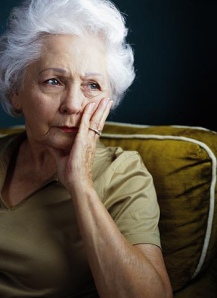Elder abuse happens, more often than you’d suspect.
Learn the warning signs and act to protect seniors. Elder abuse refers to intentional or negligent acts by a caregiver or trusted individual that causes harm to a vulnerable elder. Elder abuse takes many forms, including:
•Financial exploitation
•Physical abuse
•Neglect by a caregiver or self-neglect by an older adult
•Emotional abuse
Warning Signs:
- Financial Exploitation
- Lack of affordable amenities and comforts in an elder’s home
- Giving uncharacteristically excessive gifts or financial reimbursement for needed care and companionship
- A caregiver has control of an elder’s money but fails to provide for the elder’s needs
- An older adult has signed property transfers (power of attorney or will, for example) but is unable to comprehend what the transaction means.
- Physical Abuse
- Inadequately explained fractures, bruises, welts, cuts, sores, or burns
- Unexplained sexually transmitted diseases
- Neglect
- Lack of basic hygiene or appropriate clothing
- Lack of food
- Lack of medical aids (e.g., glasses, walker, dentures, hearing aid, or medications)
- Person with dementia left unsupervised
- Person confined in bed is left without care
- Home is cluttered, dirty, or in disrepair
- Home lacks adequate facilities (stove, refrigerator, heating and cooling, plumbing, or electricity)
- Untreated bed sores or pressure ulcers
- Emotional Abuse
- Unexplained or uncharacteristic changes in behavior, such as withdrawal from normal activities, or unexplained changes in alertness
- Caregiver isolates the elder (doesn’t let anyone in the home or speak to the elder)
- Caregiver is verbally aggressive or demeaning, controlling, or uncaring
Risk Factors:
Elder abuse can happen to anyone and can occur
anywhere—in a person’s own home, in nursing homes
or assisted living facilities, even in hospitals. It affects
elders across all socioeconomic groups, cultures, and
races. Based on available information, women, elders
who are homebound or isolated, and individuals ages
80 and older are most at risk. Perhaps surprising is
that the mistreatment is most often perpetrated by the
individual’s own family members. Common risk factors
for abuse include:
- The elder is socially isolated or withdrawn
- The elder is in poor physical health
- The elder has dementia or mental health or substance abuse issues
- The perpetrator has mental health or substance abuse issues
If You Suspect Abuse—Report It.
If you suspect elder abuse, report it. Act to protect
seniors by bringing suspected abuse to the attention of
the appropriate authorities. To report suspected abuse,
contact your local adult protective services agency. For
state reporting numbers, call the Eldercare Locator at
1-800-677-1116.
Disclaimer:
This document was produced for the National Center on Elder Abuse
by the University of Delaware and was supported in part by a grant from
the Administration on Aging, U.S. Department of Health and Human
Services (DHHS) (90-AM-3146-02). Grantees undertaking projects under
government sponsorship are encouraged to express freely their findings and
conclusions. Therefore, points of view or opinions within this document do
not necessarily represent official Administration on Aging or DHHS policy.

